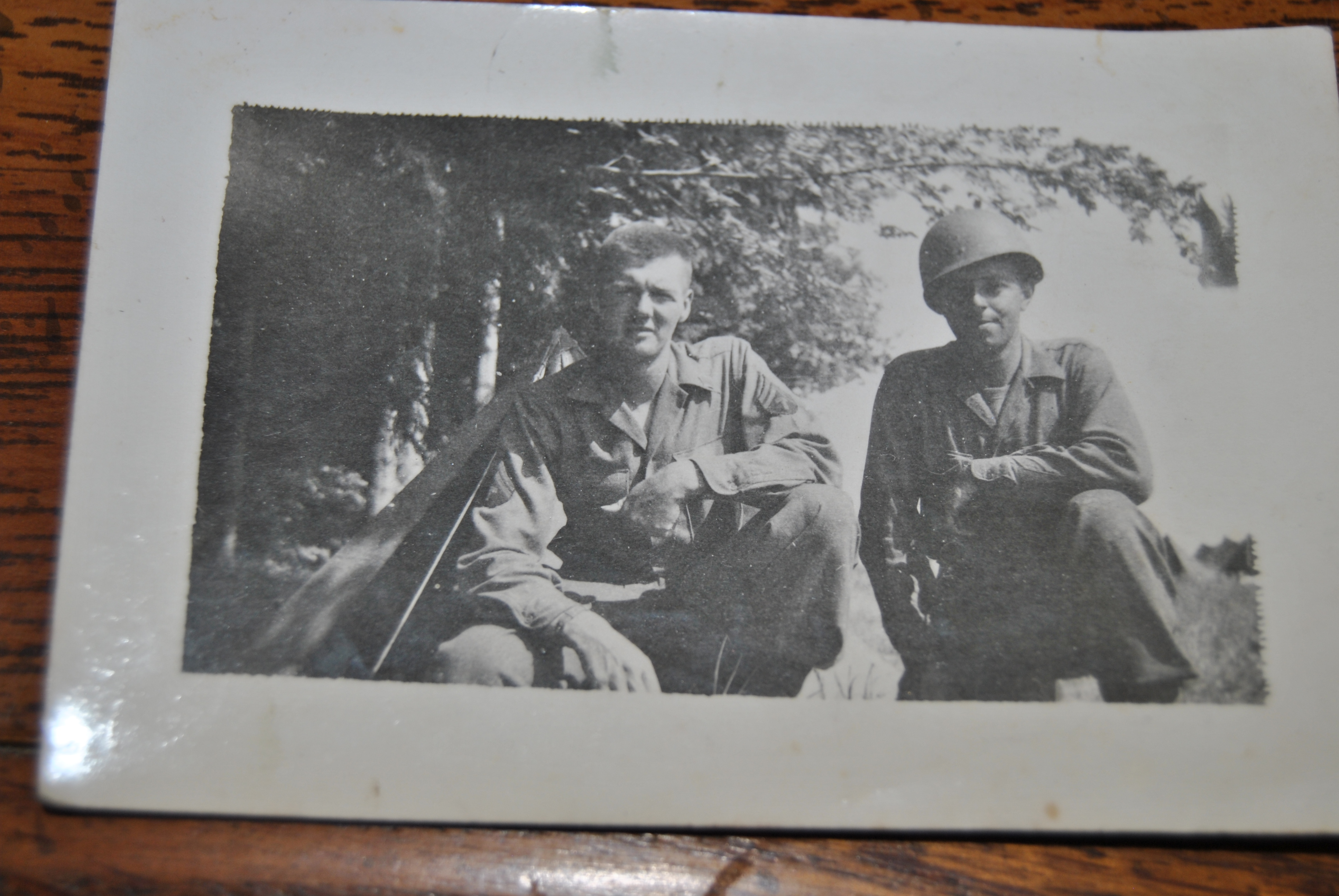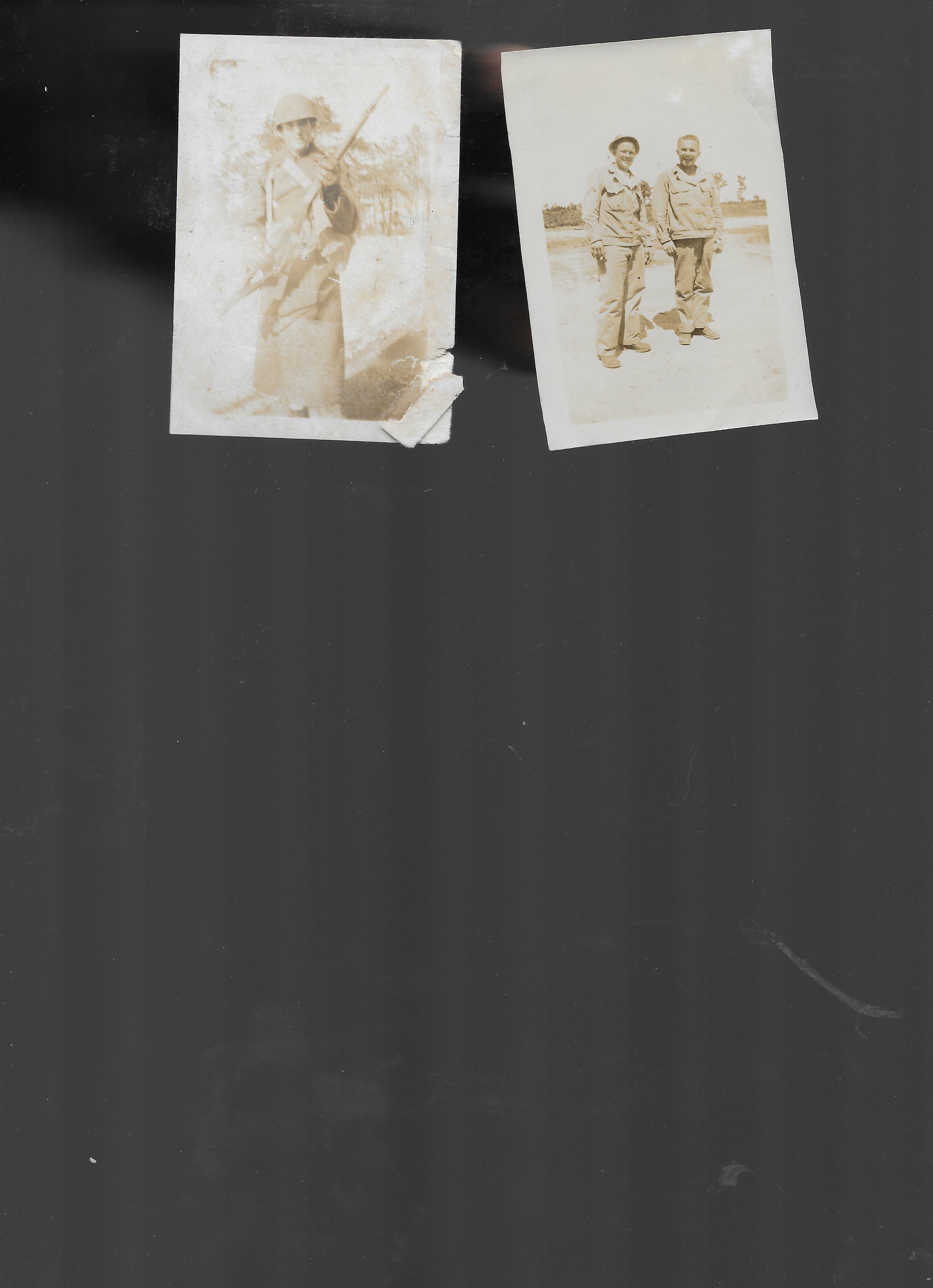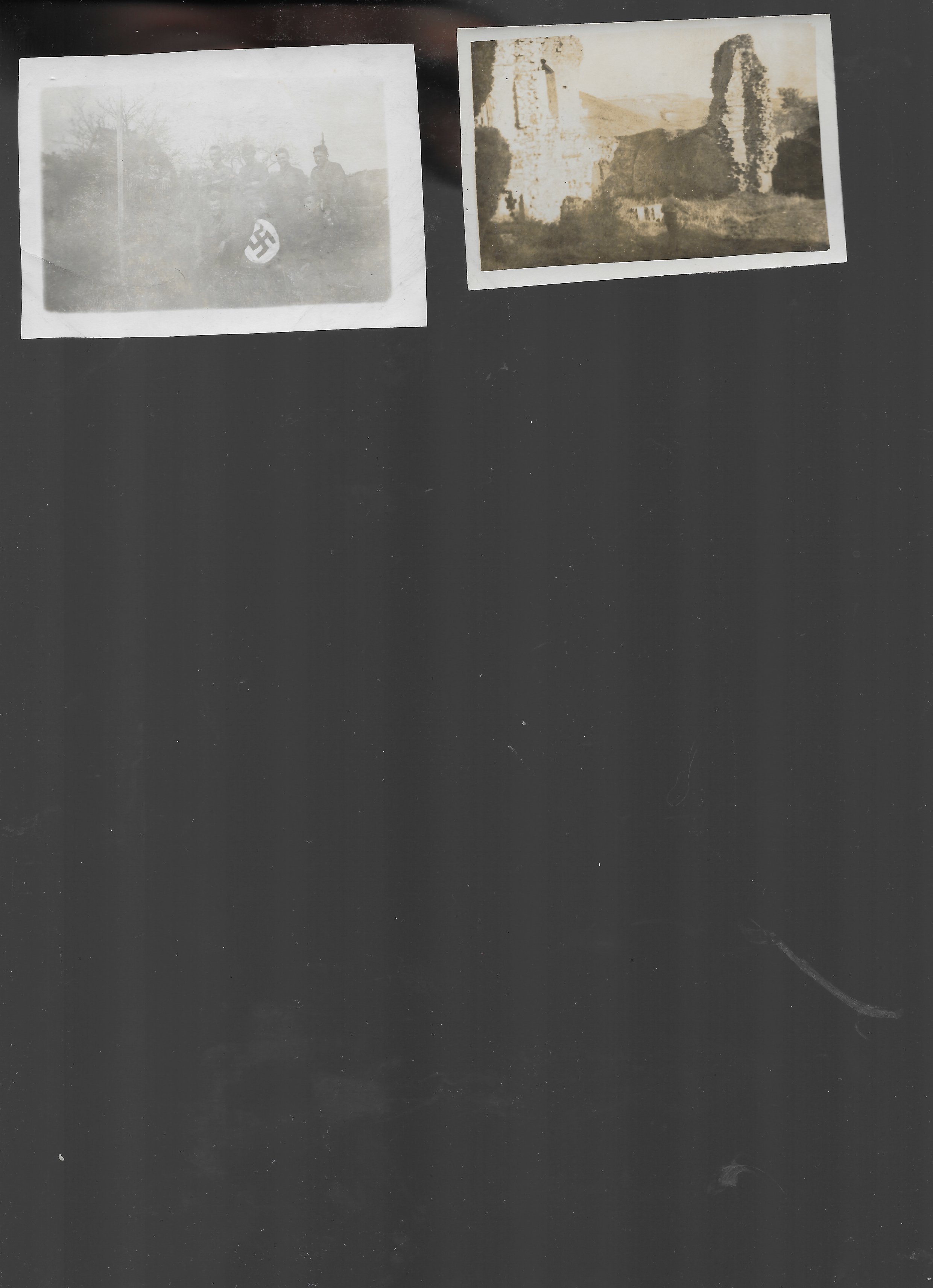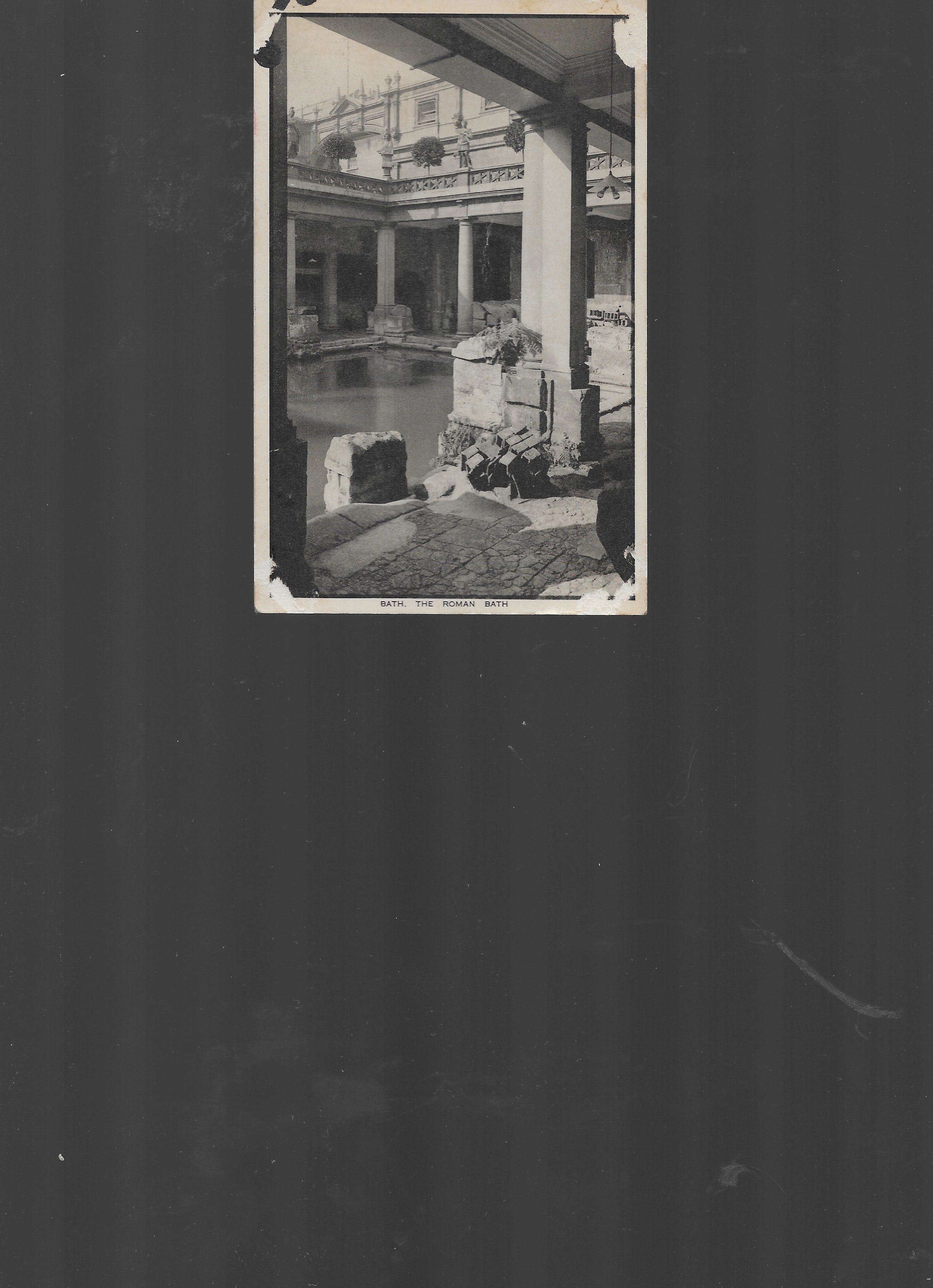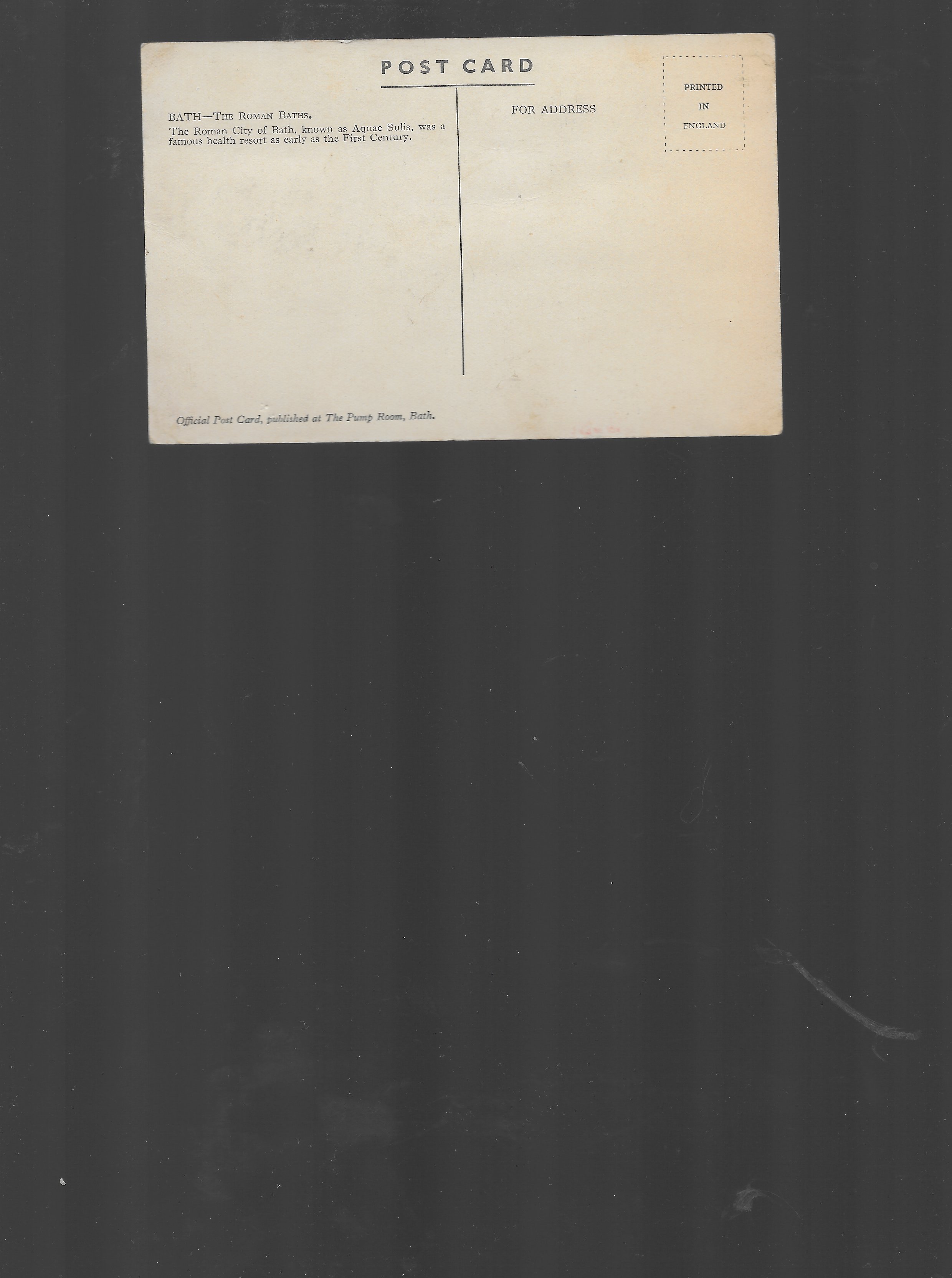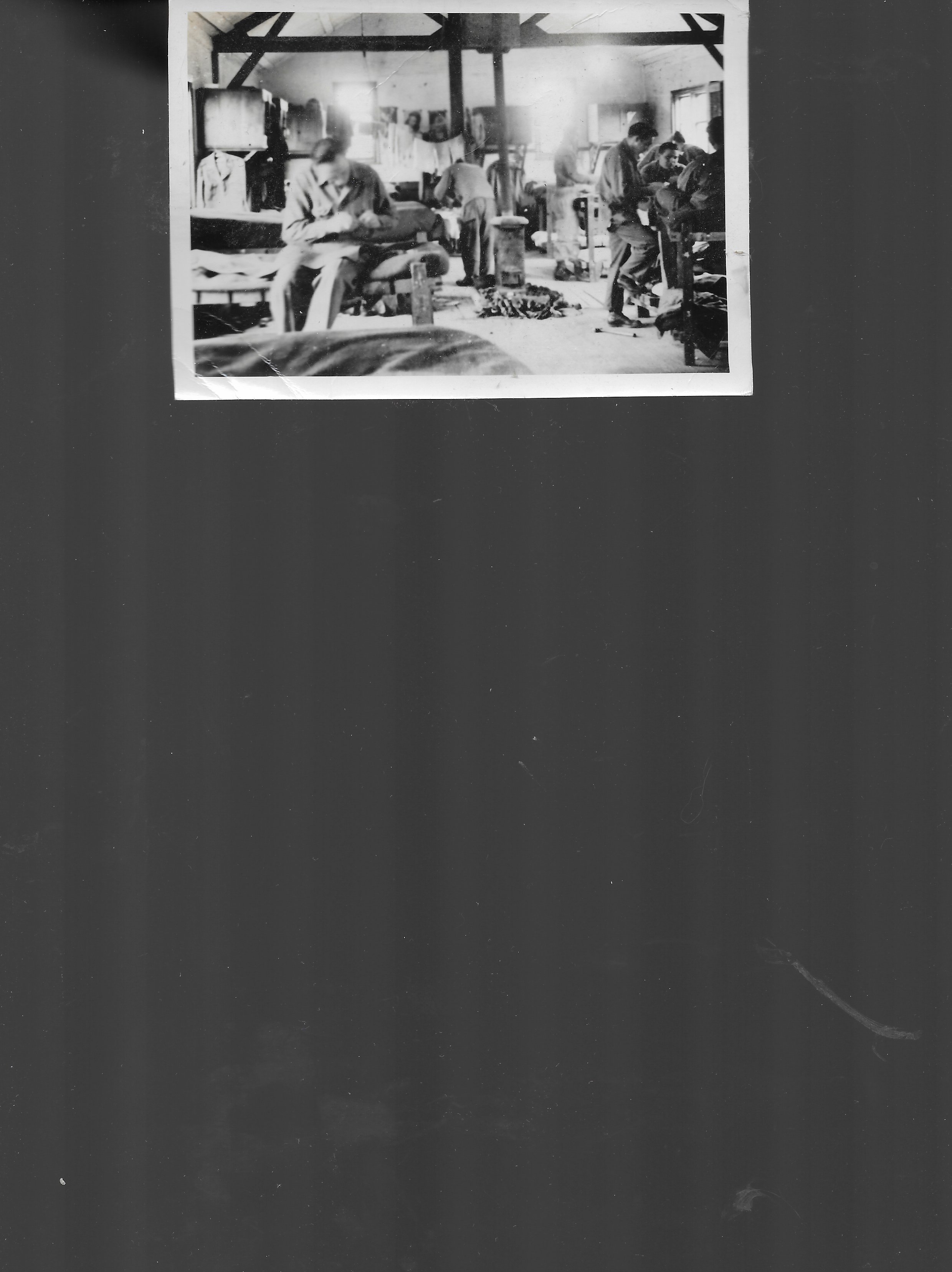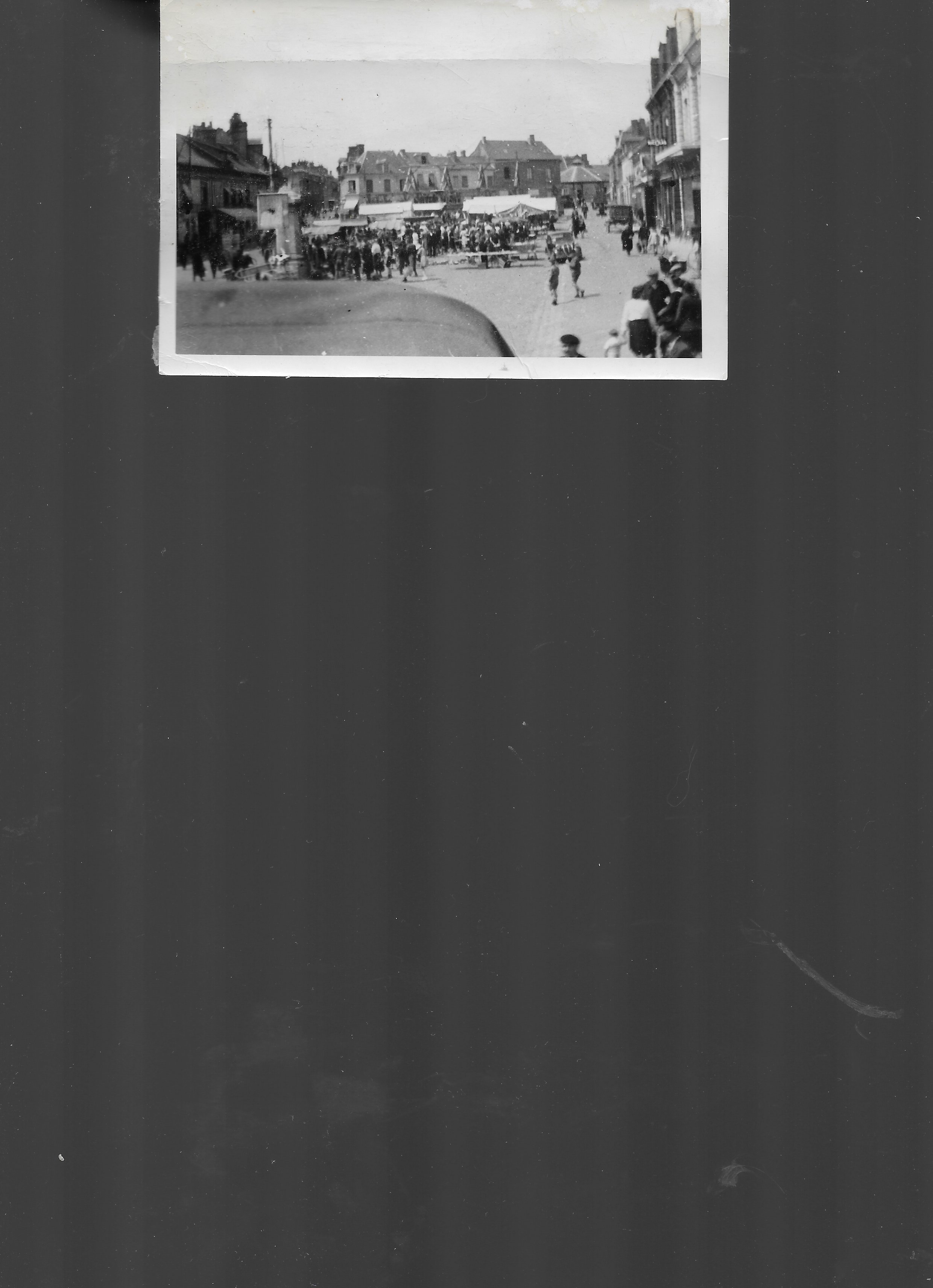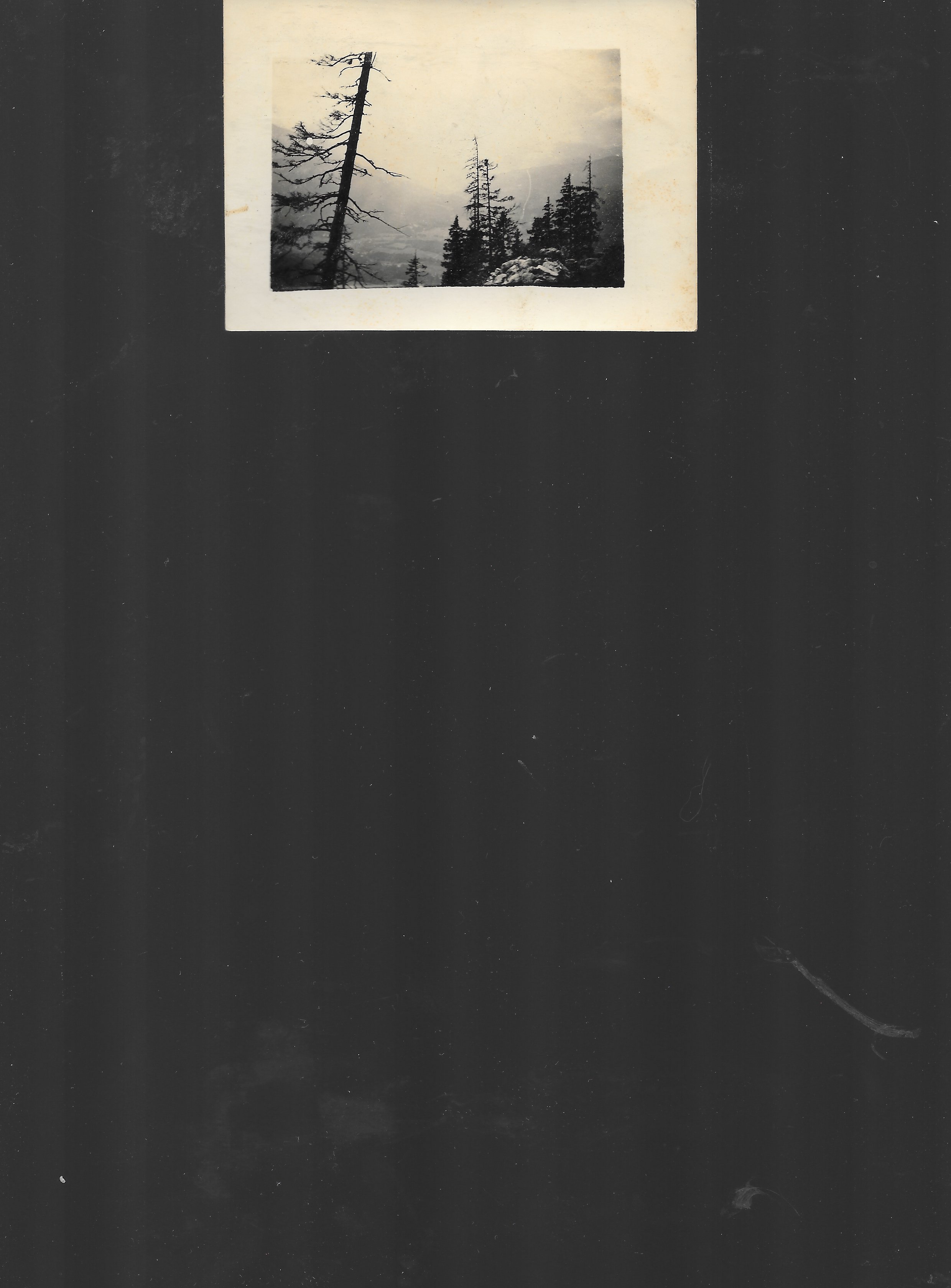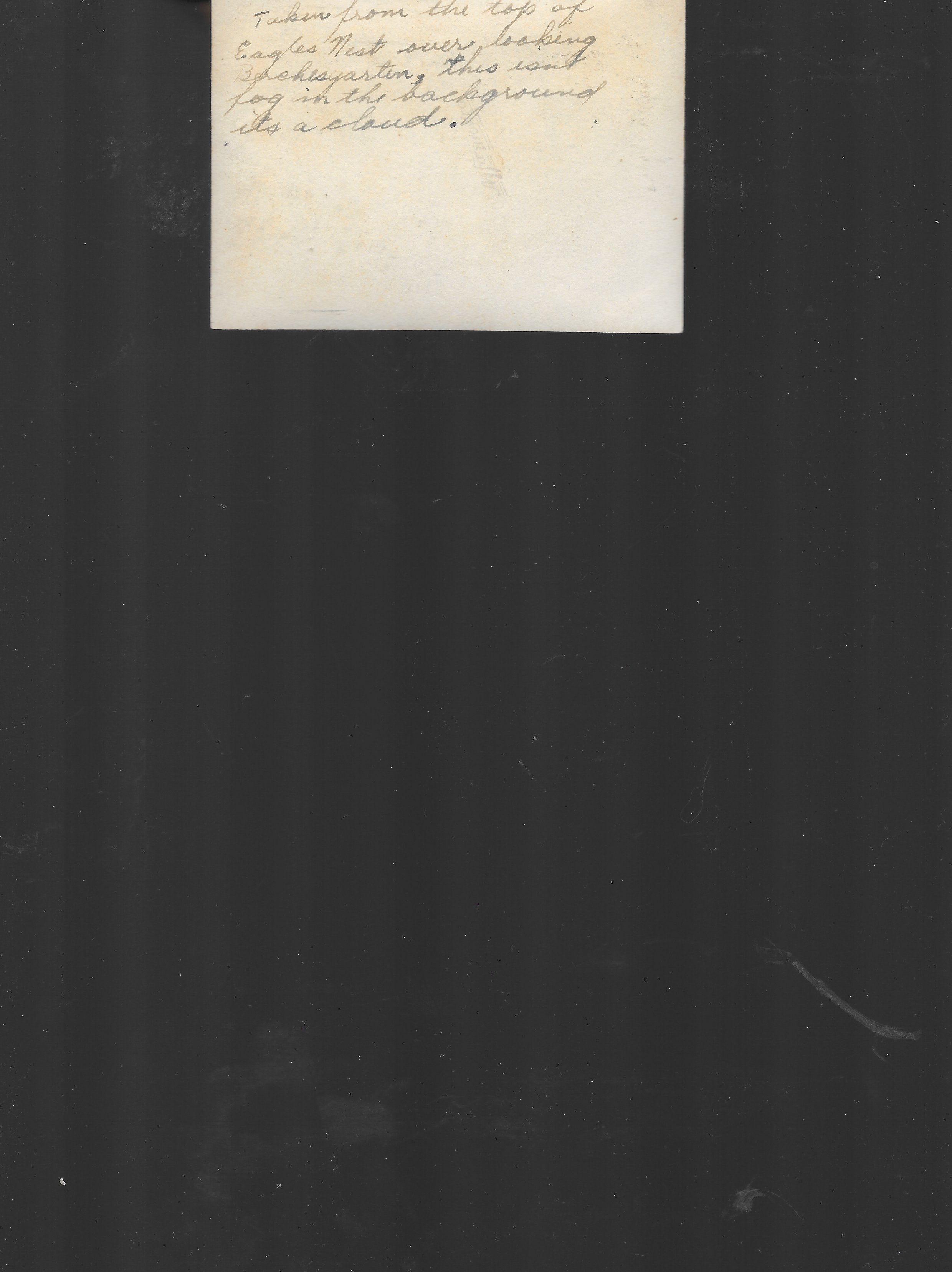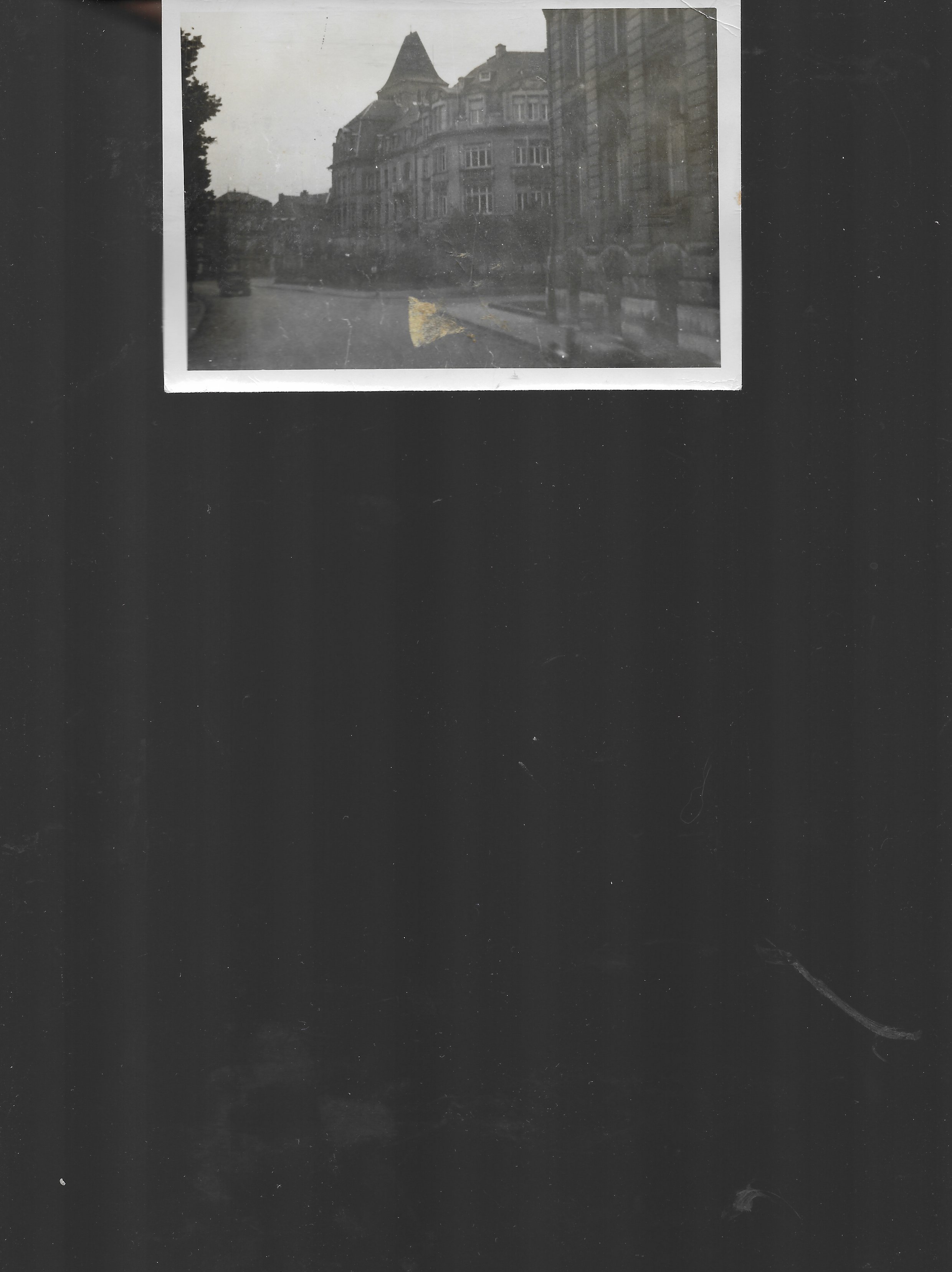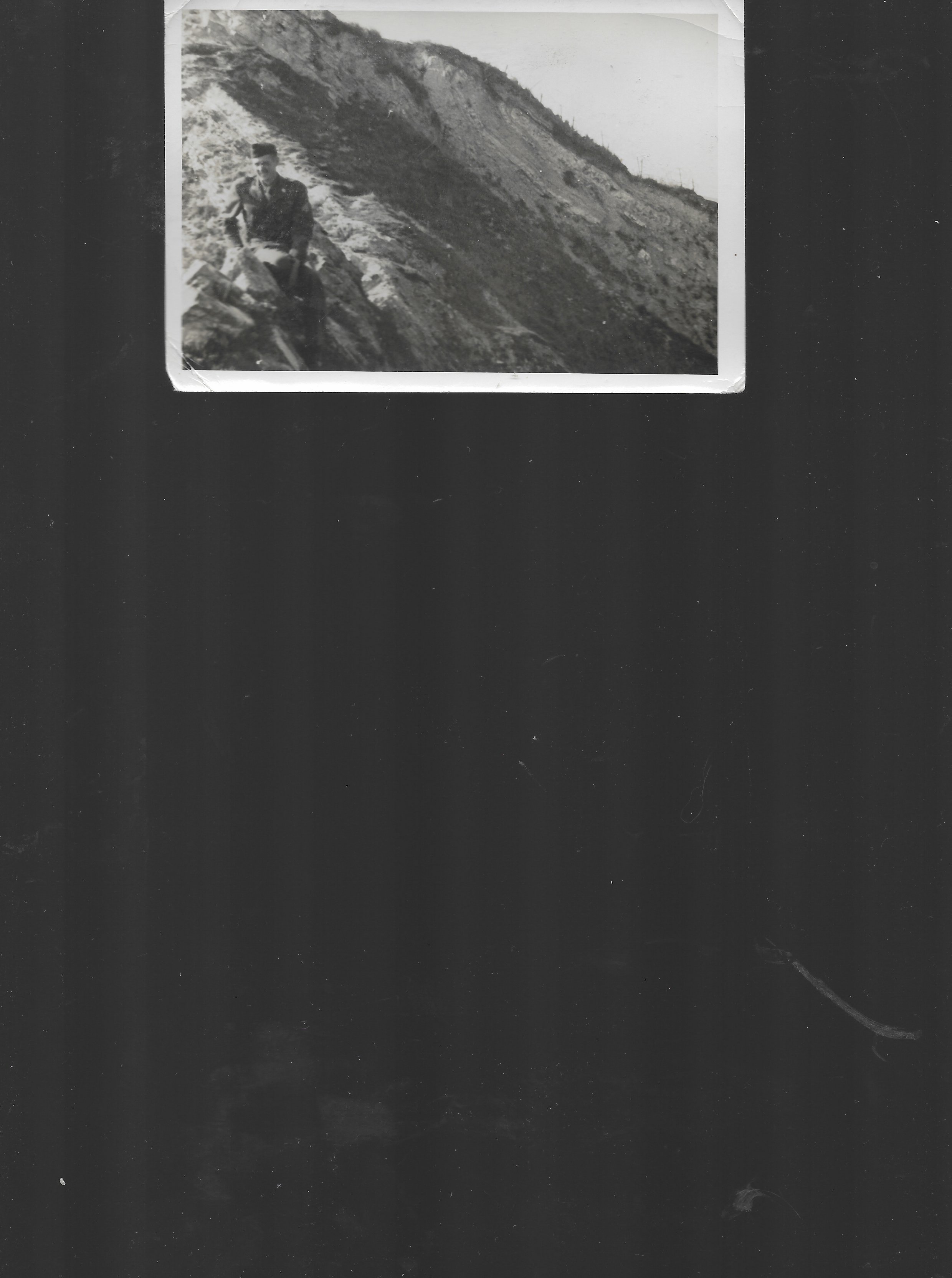I am the daughter of a WWII veteran —-a member of Patton’s Third Army
|
Daddy went into Normandy 10 days after D-Day—he said the landing field was 10 miles deep—meaning the Germans had been pushed back 10 miles by that time he explained to me when I questioned the term. He still landed on a landing vessel and suddenly a country boy from PA was in his second new country—He had not served in Africa as he was found to have promising learning abilities and was sent to Cape Cod where he was taught to work with telephone and radio communications and he would provide this service during the 3rds march across Europe—in fact he always said that was why he was given the Bronze Star award for stringing communication lines—no big thing he’d say—but my understanding is this particular time was under the heavy enemy fire—something most of our local communications people don’t usually have to carry out.
Wars may be fought with weapons, but they are won by men. It is the spirit of men who follow and of the man who leads that gains the victory.
-

A Collection of Michael Waltrip Pictures, Cards, sticker, articles and an Autographed Card
$39.00
My Father was stationed in England for awhile and never did I hear him say so much as a mild complaint about the country or the people—he reminded me regularly when he was telling his stories how much they gave, how they lived (an many died) thru the bombings…..how they routinely spent their nights in the underground—he was one of the first that taught me you never called the TUBE a subway—-and then went to work or what ever other responsibility as if they’d spent the night in a cozy bed at home.
He told of the horrible damage to London and other parts of the country from the bombing and how even though the rest of Europe folded, they stood alone on their island and would not give in nor even compromise. How the British Air Force battled the Nazis to protect their home–(I was in London for the Queen Mum’s funeral and they flew one of the British fighters over the area where we were standing in the park watching her last procession out of London to her final resting place with her husband in Windsor. One of the ladies that was standing with us told us of her time in London as a child during the Blitz and how she always felt safe when they would hear the fighter planes because they knew they were safe during that night at least) and how they sent their children away from the big cities (not all as the lady I meet explained her parents decided against it) and he also related with a kind of pride in the country that the King and Queen had remained in London with their people.
When I was in London the first time and took a tour of Westminster Abbey the elderly lady showed us a book that they have displayed in this ancient holy place which bears the name of all the Americans who were lost fighting in Europe. When I told her that my dad been part of that fight she took my hand and with a tear in her eye thanked me and of course my dad.
-

Reprint of the Original Tiger Beat’s 1968 Official Monkee Spectacular Collectors’ Annual
$4.99
I have heard many people say that their fathers never spoke of the horrors of war that it was something to keep to themselves, but my dad shared his experiences, he shared his stories with others—-and he taught me as well to try to take life and make the bad bearable by making it a lesson and to add to our knowledge and our strength—that I learned from dad.
He was in Paris—some place I am totally sure he would never have seen if not for this horrible war—He was not so complimentary of the French and I always felt that he and many Americans during that period felt betrayed by the Nazi sympathizers in their government, but he did speak highly of de Gaulle and his returning to save his country.
Much of of Europe he traveled by foot, but I do know that he was in a truck with other troops during part of that trip for he told the story more than once while holding the empty shell in his hand (I have no idea what happened to that spent bullet—it has disappeared from the family pieces of the past)—and he would tell the story of going thru the country—then he would go off to explain about this one night and the bullet coming thru the opening in the back of the truck and him actually feeling it pass—it was so close to his head—-he would continue—that he felt the heat and after the event was over his hair was fused and burnt from front to back, by passing bullet that if it had been a tiny bit lower would have meant that he would not have returned from the war and I would never ever have been…..my first taste of the mortality of this world.
Tracer ammunition (tracers) are bullets or cannon caliber projectiles that are built with a small pyrotechnic charge in their base. Ignited by the burning powder, the pyrotechnic composition burns very brightly, making the projectile trajectory visible to the naked eye during daylight, and very bright during nighttime firing. This enables the shooter to make aiming corrections without observing the impact of the rounds fired and without using the sights of the weapon. Tracer fire can also be used to signal to other shooters where to concentrate their fire during battle.
When used, tracers are usually loaded as every fifth round in machine gun belts, referred to as four-to-one tracer
https://en.wikipedia.org/wiki/Tracer_ammunition
-

8 x 10 Autographed by Bobby Allison Photo in a Metal Glassless Frame
$20.00
https://www.etsy.com/listing/751150945/8-x-10-autographed-by-bobby-allison?ref=shop_home_active_3
This picture is one of the few my dad made any identification on:
It says:
“Taken from the top of Eagles Nest overlooking Berchtesgaden , this isn’t fog in the background its a cloud.”
While many visitors assume that “Berchtesgaden” and “Hitler’s Eagle’s Nest” are one and the same, “Eagle’s Nest” (“Kehlsteinhaus” in German) actually refers to just the mountaintop chalet, located right above (but not in) the resort of Berchtesgaden. This extravagant lodge — its precision stonework evoking both fascist obedience and slave labor — was only the tip of a vast compound that served as Hitler’s second seat of government and his planned refuge of last resort. What remains is now wide open to visitors.
Berchtesgaden, the alpine ski town on the southern edge of Germany, just 12 miles from Salzburg, is now primarily famous for its Nazi history. But long before its association with Hitler, Berchtesgaden was one of the classic Romantic corners of Germany. Hitler’s propagandists capitalized on the Führer’s love of this region to establish the notion that the former Austrian was truly a German at heart.
Hitler’s Eagle’s Nest at Berchtesgaden
By Rick Steves https://www.ricksteves.com/watch-read-listen/read/articles/hitlers-eagles-nest-at-berchtesgaden-

Never Opened or Played Monkees Every Step of The Way In original clear plastic
$15.00
So my dad made it to Germany—and stood where that evil creature once stood and he took a beautiful picture of it—which should tell you something about my dad.
After the war he turned to religion–one that did not believe in using fire arms what-so-ever and he stayed faithful to all the tenants of that church and it’s worship practice until the day he died…..oh so many years ago—I returned for his funeral and mourned his passing……and a summer two years ago after my mom left this earth as well my brother and I took their ashes and sprinkled them on White Fish Bay as they had requested.
And today I shared my remembrance of him with you all as my celebration of one and in my own way all of those out there that have served their country and gone on to raise their children and make a better land of this country—-I am afraid that it is something that we are close to loosing now and pray that we will remember what they fought and many died for and that others went on to live out in their post service lives and I pray that they have not labored in vain and that we can see the good in this country and come together and preserve what they so valiantly fought for.
Thank you Veterans.
Oh and in the main picture the soldier on the left is dad and the picture below is him too. And all these pictures were taken by him or a fellow soldier during WWII
Thank you for listening to my memories
Never was so much owed by so many to so few
–Winston Churchill

